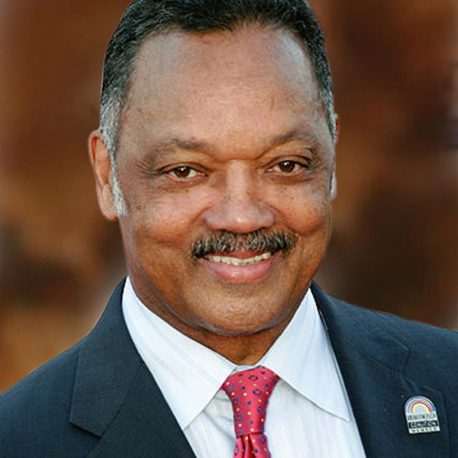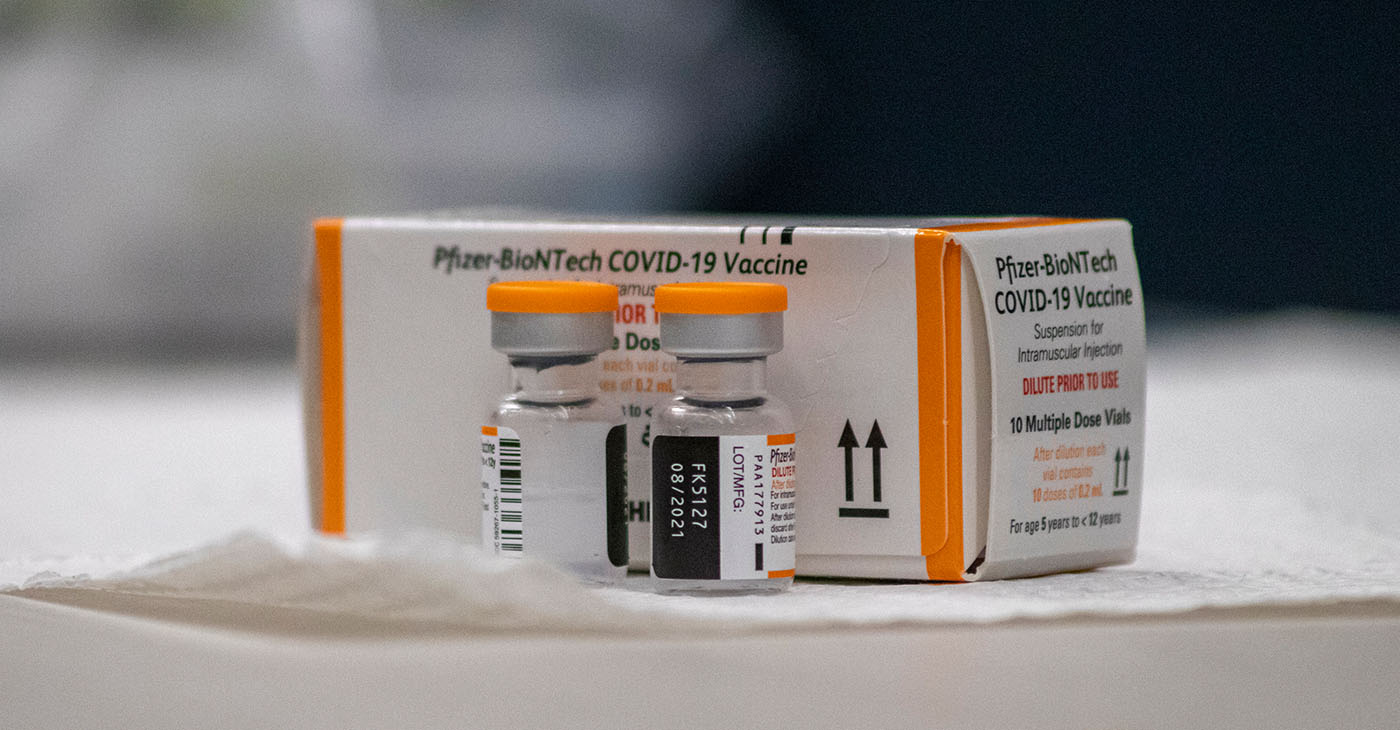Coronavirus
We Must Protect the Right to Vote in the November Elections

The coronavirus does not discriminate, but people do. The coronavirus is not partisan, but politicians are. When we should be coming together to address a shared crisis, some are intent on driving us apart and exacting partisan advantage in the midst of the crisis.
Across the country, Republicans are intensifying their efforts to make it harder to vote, with particular focus on suppressing the votes of African Americans and other minorities.
With the pandemic making in-person voting dangerous, Congress should move rapidly to provide resources to help every state create systems for voting by mail. The first rescue package, the CARES Act, included some money for vote-by-mail programs, but far short of what is needed.
Why not provide it? Republicans are worried that voting by mail may increase turnout, particularly among low-income and minority voters. Donald Trump voiced the fear, saying “They had things, levels of voting, that if you’d ever agreed to it, you’d never have a Republican elected in this country again.” Trump said this in March, dismissing Democratic efforts to expand mail-in voting, make registration easier, and extend voting days.
Republican voters in states that already have widespread vote by mail support the program overwhelmingly. Some sensibly argue that vote by mail might actually help Republicans this fall because older voters — who tend to be more conservative — are more likely to be reluctant to expose themselves to the virus by going to crowded voting places. But Republican history, grounded in the Southern party base that has always sought to suppress the black vote, makes them fear efforts to make voting easier for all.
In Wisconsin, we saw the deadly effects of that. Wisconsin Republicans in control of the state legislature blocked the Democratic governor’s effort to allow widespread vote by mail in the primary. When state election officials were swamped by a staggering demand for absentee ballots, they refused to extend the time for voting, ensuring that thousands never received a response to their request for a ballot.
At the same time, officials were slashing the number of voting precincts, worried they would lack volunteers to staff them. In Milwaukee, the home of two-thirds of the Black population in Wisconsin, the number of polling places was reduced from 180 to five. That guaranteed long lines that surely made it impossible for many still at work to vote and put those who did vote at risk. Dozens who went to vote have since contracted the coronavirus.
Simultaneously, conservatives in Wisconsin have joined with Republicans to push purging of voter lists. From 2016 to 2018, Wisconsin purged 14% of voters on its rolls (the national average is about 7.6%). In the most recent round, election officials sent letters to 232,000 voters who would be removed if they did not respond. One in eight voters in Milwaukee were at risk. Voters in Black neighborhoods were nearly twice as likely to be flagged as those in white neighborhoods.
In Georgia in 2018, the Republican candidate for governor, Brian Kemp, was serving as the secretary of state. He sought to purge 300,000 voters, and 53,000 voter registrations were put on hold; 80 percent were people of color. Two hundred voting precincts were closed, most in areas with large Black populations. The Democratic candidate, Stacy Abrams, lost the race by a margin far less than the votes that were suppressed.
As she noted, “Especially in states like Georgia, where diversifying demographics have us on the precipice of transformative political change, we are seeing Republicans employ voter suppression to limit who has access to the polls. Disproportionately, under GOP secretaries of state, this process affects Democrats, particularly in communities of color. The clear intention is to strip people of their right to vote.”
In state after state, conservative groups are suing to force purges. The Trump Justice Department has piled on: a June 2017 letter went to 44 states saying it would review how the states were planning to “remove the names of ineligible voters.”
Purging voters, blocking vote by mail, requiring official voter ID, closing precincts, limiting early voting, limiting the hours that voting booths are open, blocking same-day or automatic voter registration, gerrymandering to segregate the minority vote — the list goes on.
Voting is the fundamental basis of democracy. Particularly in times of crisis, it is vital that the people’s voice is heard. The president and the modern-day Republican Party are convinced that if everyone votes, they will not farewell. Think about that.
Our last presidential election was marred by foreign intervention and WikiLeaks. We couldn’t stop that. But we should not steal from ourselves. We cannot allow the coming election to be scarred by homegrown intervention and TrickiLeaks.
California Black Media
Gov. Newsom and Gov. DeSantis Go Head-to-Head in Nationally Televised Debate
Conservative Fox News personality Sean Hannity moderated the duel, during which the TV pundit, more than once, injected his opinion, and appeared to be providing subtle assists to DeSantis. As the debate progressed, it was clear that opinions about each topic discussed was representative of the philosophical and political chasm that divides liberal and conservative America, and a preview of campaign mudslinging that is bound to intensify as the 2024 presidential campaign ensues.

By California Black Media
In an intense, 95-minute-plus televised faceoff between California Gov. Gavin Newsom and Florida Gov. Ron DeSantis on Nov. 30, the men traded jabs and putdowns, defended their respective gubernatorial records, disagreed sharply on how to solve the country’s most pressing problems, and expressed clashing views on the performance of the Biden-Harris administration.
Conservative Fox News personality Sean Hannity moderated the duel, during which the TV pundit, more than once, injected his opinion, and appeared to be providing subtle assists to DeSantis.
As the debate progressed, it was clear that opinions about each topic discussed was representative of the philosophical and political chasm that divides liberal and conservative America, and a preview of campaign mudslinging that is bound to intensify as the 2024 presidential campaign ensues.
“I’ll tell you why I’m here,” Newsom said. “I’m here to tell the truth about the Biden-Harris record and also compare and contrast Ron DeSantis’ record and the Republican Party’s record” with that of California.
DeSantis blasted Newsom’s management of the COVID-19 crisis and criticized Newsom for prevalent crime, homelessness and deteriorating social conditions in California cities.
“You have the freedom to defecate in public in California,” DeSantis said. “You have the freedom to pitch a tent on Sunset Boulevard. You have the freedom to create a homeless encampment under a freeway and even light it on fire. They’re not the freedoms our founding fathers envisioned.”
Newsom took a jab at DeSantis’ presidential candidacy, predicting that the Florida Governor would be endorsing GOP frontrunner Donald Trump soon.
“There’s one thing we have in common,” Newsom said. “Neither of us will be the nominee for our party in 2024.
BayCityNews
FDA Updates Approval of Pfizer Booster Vaccine for Children Under 5
The U.S. Food and Drug Administration updated its approval Tuesday of the Pfizer-BioNTech booster vaccine, making it available to some children under age 5. Before this update, children under 5 were not eligible for COVID-19 booster shots. Instead, they received three doses of the regular vaccine.

By Eli Walsh
Bay City News
The U.S. Food and Drug Administration updated its approval Tuesday of the Pfizer-BioNTech booster vaccine, making it available to some children under age 5.
Before this update, children under 5 were not eligible for COVID-19 booster shots. Instead, they received three doses of the regular vaccine.
As of December 2022, children age 4 and younger who have not been vaccinated receive the omicron variant-specific booster vaccine as the third dose in their primary vaccine series, following two doses of the original Pfizer vaccine.
However, children in that age range who completed their initial vaccination series before December 2022 only received three doses of the original Pfizer vaccine, and are less protected against more infectious variants of the virus as a result.
FDA officials updated the vaccine’s emergency use authorization Tuesday to allow those children who only received the original Pfizer COVID vaccine to receive one dose of the bivalent booster if it has been at least two months since they completed their initial series.
Other children under age 5 are not eligible for the booster, although everyone age 5 and up is eligible for a booster.
“Currently available data show that vaccination remains the best defense against severe disease, hospitalization and death caused by COVID-19 across all age groups, and we encourage all eligible individuals to make sure that their vaccinations are up to date with a bivalent COVID-19 vaccine,” said Dr. Peter Marks, the director of the FDA’s Center for Biologics Evaluation and Research.
Clinical data has found that both the original Pfizer vaccine and the booster vaccine that targets the omicron subvariants BA.4 and BA.5 are safe for everyone aged 6 months and up and effective at preventing the worst outcomes of COVID infection, including serious illness and death.
COVID vaccines are available at primary care providers, retail pharmacies and some facilities operated by local health departments.
Copyright © 2023 Bay City News, Inc. All rights reserved. Republication, rebroadcast or redistribution without the express written consent of Bay City News, Inc. is prohibited. Bay City News is a 24/7 news service covering the greater Bay Area.
Bay Area
COVID-19 Response Grant Program
The City of Union City will be issuing another round of its COVID-19 Response Grant Program. The program has distributed approximately $620,000 in grant funds and forgivable loans to the community to respond to the impacts of COVID-19 and will distribute another $322,000 through this latest round of funding. The City will utilize federal Community Development Block Grant (CDBG) and CARES Act funds.

The City of Union City will be issuing another round of its COVID-19 Response Grant Program. The program has distributed approximately $620,000 in grant funds and forgivable loans to the community to respond to the impacts of COVID-19 and will distribute another $322,000 through this latest round of funding. The City will utilize federal Community Development Block Grant (CDBG) and CARES Act funds.
Grants are available through the City’s Road to Recovery Small Business Assistance Program and the Residential Rental Assistance Program. The City began accepting applications on March 6, 2023, at 9 a.m. and will begin reviewing applications (up to 50 applications for each grant opportunity) submitted on or before March 30, 2023, at 5 p.m. The program information and the online application are available on the City’s website:
https://www.unioncity.org/548/COVID-19-Response-Grant-Program
The City will be holding two informational/technical assistance meetings to support residents and businesses with their applications and respond to any questions. These meetings will be streamed via Zoom. See below for meeting information and Zoom meeting links.
Tuesday, March 14, 2023: 9 a.m. to 10 a.m.
https://unioncity-org.zoom.us/j/89061570160
Wednesday, March 15, 2023: 12 p.m. to 1 p.m.
-

 Activism4 weeks ago
Activism4 weeks agoOakland Post: Week of March 20 – 26, 2024
-

 #NNPA BlackPress3 weeks ago
#NNPA BlackPress3 weeks agoCOMMENTARY: D.C. Crime Bill Fails to Address Root Causes of Violence and Incarceration
-

 #NNPA BlackPress4 weeks ago
#NNPA BlackPress4 weeks agoFrom Raids to Revelations: The Dark Turn in Sean ‘Diddy’ Combs’ Saga
-

 #NNPA BlackPress3 weeks ago
#NNPA BlackPress3 weeks agoMayor, City Council President React to May 31 Closing of Birmingham-Southern College
-

 #NNPA BlackPress4 weeks ago
#NNPA BlackPress4 weeks agoCOMMENTARY: Lady Day and The Lights!
-

 Activism3 weeks ago
Activism3 weeks agoOakland Post: Week of March 27 – April 2, 2024
-

 #NNPA BlackPress4 weeks ago
#NNPA BlackPress4 weeks agoBaltimore Key Bridge Catastrophe: A City’s Heartbreak and a Nation’s Alarm
-

 #NNPA BlackPress4 weeks ago
#NNPA BlackPress4 weeks agoBaltimore’s Key Bridge Struck by Ship, Collapses into Water








































